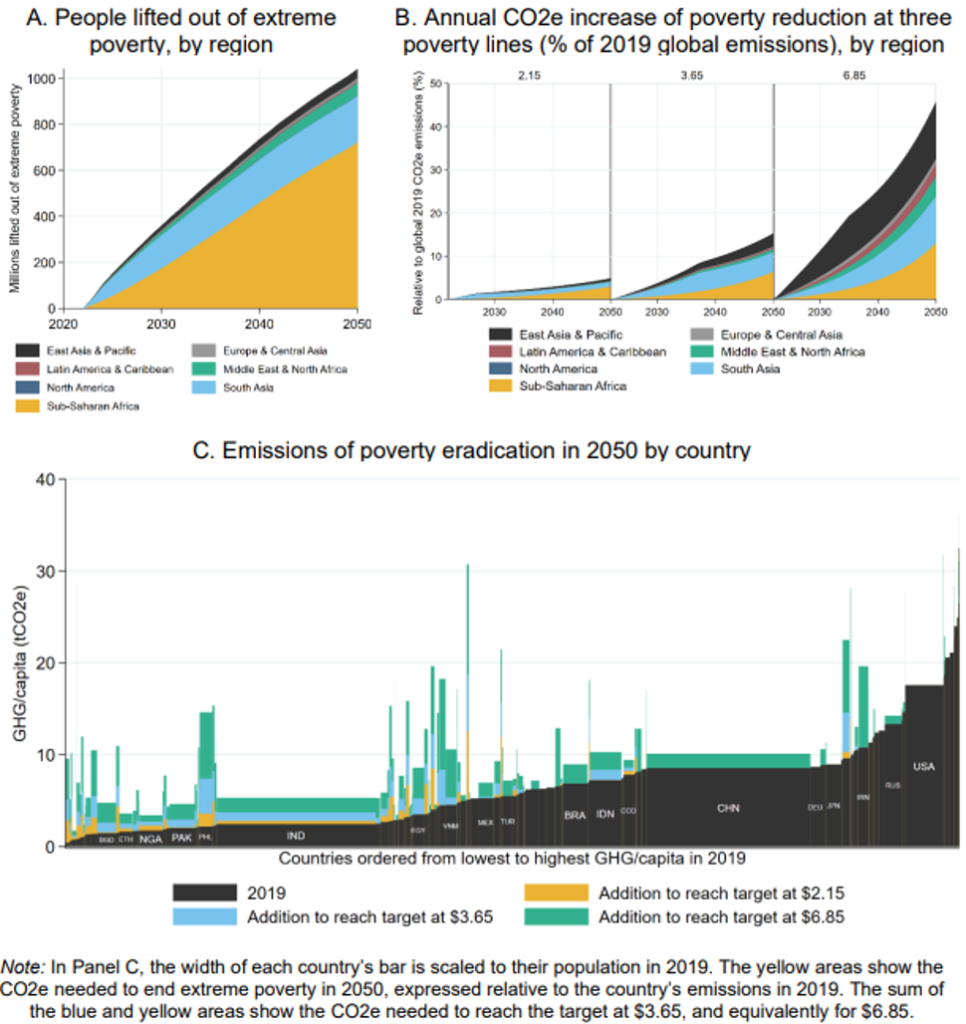 An illustration of writing a paper | © shutterstock.com
An illustration of writing a paper | © shutterstock.com
This blog is a biweekly feature highlighting recent working papers from around the World Bank Group that were published in the World Bank’s Policy Research Working Paper Series. This entry introduces 6 papers published from February 16 to February 28 on various topics, including trade agreements, climate change and banking risks.
The first three papers we introduce examine the impact that trade agreements have on various sectors. In Deep Trade Agreements and Firm Ownership in GVCs, Peter H. Egger and Gerard Masllorens explore the effect of preferential trade agreements and their depth on firm ownership, in particular, along global value chains. In Trade, Emissions, and Environmental Spillovers : Issue linkages in Regional Trade Agreement, Clark Lundberg and coauthors study the impacts of trade liberalization on the emissions of ozone depleting substances regulated under the Montreal Protocol. In Deep Trade Agreements and International Migration: The Role of Visa Provisions, Anthonin Levelu and coauthors explore the effect visa provisions in regional trade agreements have had on bilateral migration.
-
Deep Trade Agreements and Firm Ownership in GVCs analyzes the effects of entering deep Preferential Trade Agreements (PTAs) in a unique data set on the frequency of shareholder-affiliate links across all pairs of 209 countries and 38 sectors over 9 years between 2007 and 2015. The findings show that preferential trade agreements boost vertical international investment links while reducing horizontal investment. Deep preferential trade agreements stimulate investment particularly for sector pairs, where a high input specificity prevails.
-
Trade, Emissions, and Environmental Spillovers: Issue linkages in Regional Trade Agreement studies the impacts of linking trade liberalization, in the form of regional trade agreements (RTAs), to the Montreal Protocol and ozone depleting substances (ODS) reduction commitments more broadly. The paper provides causal evidence that signing a new regional trade agreement leads to increases in consumption of ozone depleting substances relative to Montreal Protocol targets. Environmental provisions aimed at controlling ozone depleting substances offset the increase in consumption of ozone depleting substances observed in regional trade agreements without such provisions. The findings also show that cumulative exposure to trade agreements, especially those with ozone depleting substances provisions, increases the speed at which countries ratify the Montreal Protocol amendments.
-
Deep Trade Agreements and International Migration: The Role of Visa Provisions uses United Nations data on bilateral migration stocks in the period 1990-2020 to show that including visa provisions in regional trade agreements stimulates bilateral migration stock by 5.9%. The effect of the inclusion of visa provisions in regional trade agreements is particularly effective among country pairs with different income levels (such as North-South). For this type of country pairs, the presence of visa provisions in regional trade agreements increases the bilateral stock of immigrants by 13 percent. Finally, the paper shows that the effectiveness of visa provisions in regional trade agreements reduces with the anti-immigration sentiment of voters in the destination.
Figure 1: Number of RTAs by year, period 1958-2018
The last three papers we introduce deal with the very timely topic of climate change. In The Climate Implications of Ending Global Poverty, Philip Wollburg and coauthors focus on economic growth as the driver of poverty alleviation and estimate the emissions associated with the growth needed to eradicate poverty. In Human Capital and Climate Change, Harry Patrinos and coauthors estimate causal effects of additional education on pro-climate outcomes using new compulsory schooling law data across 16 European countries. In Banking Sector Risk in the Aftermath of Climate Change and Environmental-Related Natural Disasters, Owen Nie and coauthors provide preliminary estimates of the aggregate impact of physical risks from climate and environmental-related natural disasters on bank balance sheets across 184 countries over nearly 40 years.
- The Climate Implications of Ending Global Poverty finds that the global emissions increase associated with eradicating extreme poverty is small, at 2.37 gigatonnes of equivalent carbon dioxide in 2050, or 4.9 percent of 2019 global emissions. These additional emissions would not materially affect the global climate change challenge: global emissions would need to be reduced by 2.08 gigatons of equivalent carbon dioxide per year, instead of the 2.0 gigatons of equivalent carbon dioxide per year needed in the absence of any extreme poverty eradication. Lower inequality, higher energy efficiency, and decarbonization of energy can significantly ease this trade-off: assuming the best historical performance in all countries, the additional emissions for poverty eradication are reduced by 90 percent.

- Human Capital and Climate Change uses new compulsory schooling law data across 16 European countries to estimate causal effects of additional education on pro-climate outcomes. The paper analyzes effects on pro-climate beliefs, behaviors, policy preferences, and data on voting for green parties. Results show a year of education increases pro-climate beliefs, behaviors, most policy preferences, and green voting, with voting gains equivalent to a substantial 35% increase.
- Banking Sector Risk in the Aftermath of Climate Change and Environmental-Related Natural Disasters examine the association between natural disasters and banks’ asset quality. The analysis finds that severe disaster episodes lead to an increase in the level of systemwide non-performing loans, which is persistent over time. The paper complements the cross-country results with a country-specific example, which finds that typhoon damages lead to a significant increase in non-performing loans in the Philippines between 2011 and 2018.
The following are other interesting papers published in the second half of February. Please make sure to read them as well.
- Energy Demand during a Pandemic: Evidence from Ghana and Rwanda
- Child Labor Standards in Regional Trade Agreements: Theory and Evidence
- The Importance of Maintenance: Geospatial Analysis of Cholera Risk and Water and Sanitation Infrastructure in Harare, Zimbabwe
- Estimating spatially disaggregated probability of severe COVID-19 and the impact of handwashing interventions: The case of Zimbabwe
- Assessing the Impact of Renewable Energy Policies on Decarbonization in Developing Countries
- Trade and Local Labor Market Outcomes in Mexico: Disentangling the Channels and the Role of Geography, Sectors, and Trade Types
- Pursuing Environmental and Social Objectives through Trade Agreements
- Revisiting the Trade-Creating Effects of Non-Tariff Barriers
- The Impacts of Intellectual Property–Related Preferential Trade Agreements on Bilateral Patent Applications
- Take-Up and Labor Supply Responses to Disability Insurance Earnings Limits
- Quality and Inequality in Pre-Primary and Home Environment Inputs to Early Childhood Development in Egypt
- Effective Tax Rates and Firm Size
- Internal Conflicts and Shocks. A Narrative Meta-Analysis
- Food Insecurity Erodes Trust
- The Prices in the Crises: What We Are Learning from Twenty Years of Health Insurance in Low- and Middle-Income Countries
- Understanding Home Bias in Procurement: Evidence from National and Subnational Governments
- Long-Lived Consequences of Rapid Scale-Up? The Case of Free Primary Education in Six Sub-Saharan African Countries




Join the Conversation